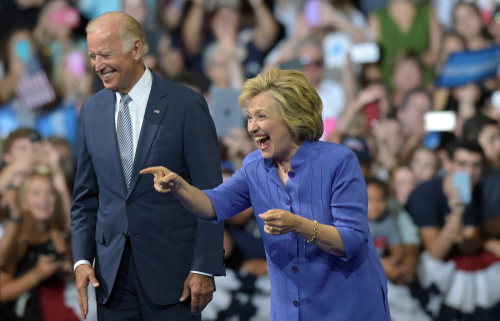Congress has subpoenaed Bill and Hillary Clinton along with top law enforcement officials in a sweeping probe of the Epstein scandal, raising fresh questions about government transparency and accountability on issues Americans care deeply about.
Subpoenas Target Powerful Figures in Epstein Investigation
On August 5, 2025, the House Oversight Committee, now operating under a renewed mandate for government accountability, issued a broad set of subpoenas in connection with the Jeffrey Epstein case. Those targeted include former President Bill Clinton, former Secretary of State Hillary Clinton, and eight former Attorneys General and FBI Directors who served during the years Epstein’s crimes were under federal scrutiny. The subpoenas also demand all Department of Justice records tied to Epstein’s investigation, with the committee insisting that these documents be provided with appropriate redactions to protect victim privacy. This marks one of Congress’s most aggressive attempts yet to address persistent concerns about elite privilege and institutional cover-ups that have long plagued the Epstein scandal.
This investigation stands out not only for its scope but for its rare bipartisan support, reflecting the seriousness of the allegations and the broad public outrage that has surrounded Epstein’s case since 2019. The committee, led by Chairman James Comer (R-Ky.), authorized the subpoenas following heightened demands from the American people for full transparency after years of unresolved questions. Epstein’s arrest in 2019 on federal sex trafficking charges, his controversial death in custody, and suspicions of preferential treatment for powerful associates have kept the issue at the forefront of public debate.
Bipartisan Support and Demands for DOJ Accountability
The House Oversight Committee’s unified approach has lent the current investigation an unusual degree of legitimacy. Lawmakers from both parties recognize the need to restore public trust in the justice system, especially given Epstein’s ties to politicians, celebrities, and business leaders of both parties. The committee’s demands cover not only the Clintons but also a range of former top law enforcement officials, seeking clarity about the federal government’s handling of the case during both Democratic and Republican administrations. By requiring the Department of Justice to produce all correspondence, including communications with the previous Biden administration, Congress is signaling it will pursue the facts wherever they lead, regardless of party affiliation.
Despite the bipartisan backing, the committee faces potential pushback from executive agencies and high-profile witnesses, many of whom will likely seek to delay or limit testimony and document releases. The investigation’s success may hinge on how aggressively Congress enforces its subpoenas and whether the Department of Justice complies fully with requests for records. Meanwhile, the committee has set a clear expectation that all sensitive victim information will be redacted, ensuring that the privacy of survivors remains a top priority even as the public demands answers.
Public Impact, Political Stakes, and Next Steps
The implications of this renewed probe are significant for both the political class and the American public. In the short term, the subpoenas have already ramped up political tensions in Washington, with major media outlets closely tracking the responses from those called to testify. The reputations and legal standing of several prominent officials are on the line, and the Department of Justice faces mounting scrutiny over its past decisions. In the long term, the investigation could reshape how Congress oversees federal criminal investigations, potentially leading to new transparency requirements and reforms aimed at preventing future abuses of power.
The committee has scheduled depositions for September 2025, but as of mid-August, neither the Department of Justice nor the subpoenaed individuals have issued public responses or indicated whether they will comply. As the probe moves forward, the demand for full transparency will remain high, especially among Americans who have grown frustrated with perceived cover-ups and double standards for the political elite. Many conservatives see the Oversight Committee’s actions as a step toward restoring constitutional principles and holding all public officials accountable, regardless of status or party.
Bill Clinton ‘prime suspect’ in oversight probe into Epstein case, GOP lawmaker says https://t.co/hZKrzldkvi #FoxNews
— Glenn "Fuzzy" Klima (@GlennKlima16707) August 14, 2025
Legal experts warn that the unprecedented sweep of these subpoenas could lead to significant legal challenges, particularly over executive privilege and privacy. Political analysts note that while bipartisanship enhances the legitimacy of the investigation, it also heightens the stakes for both parties if wrongdoing is uncovered. Ultimately, Americans from all walks of life—especially those concerned with government overreach, constitutional erosion, and abuse of power—will be watching closely as Congress seeks long-overdue answers in the Epstein case.
Sources:
2025.08.05-Subpoena-Cover-Letters.pdf
House Oversight Committee Issues Subpoenas for Epstein Files [Video]
Subpoena to DOJ on Records Related to Jeffrey Epstein

